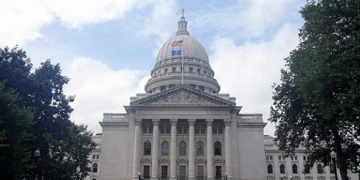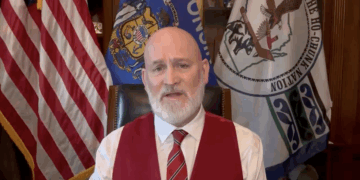Senator Ron Johnson (R., Wis.) is voicing strong opposition to what congressional negotiators are calling the “One Big Beautiful Bill,” calling it fiscally irresponsible and devoid of meaningful long-term reform.
“The current debate in Congress is obscured by politically charged rhetoric,” Johnson said. “The facts are clear—and they’re alarming.”
According to the Congressional Budget Office, federal outlays have surged 58% since 2019—from $4.45 trillion to $7.03 trillion in 2025 projections. The bill under discussion does little to reverse that trajectory, aiming to trim only $1.5 trillion from a projected $89.3 trillion over the next decade.
“Congress is struggling to agree on what amounts to a rounding error,” Johnson said, warning that the limited proposed cuts will likely be backloaded and never realized.
The senator draws parallels to World War II spending, noting that despite a 577% increase in outlays during the war, postwar leadership swiftly returned spending to normal levels. “That kind of fiscal responsibility is sorely lacking today,” he added.
RELATED: Millions Spent, Little Tracked: Wisconsin DEI Audits Reveal Oversight Failures
With national debt approaching $37 trillion and projected to hit $59 trillion by 2035—134% of GDP—Johnson calls for a return to pre-pandemic spending levels. That would reduce annual outlays to 20.6% of GDP, yielding $8.4 trillion in savings over a decade.
Johnson is also concerned about the assumption that automatic tax increases will occur in 2026 when elements of the 2017 tax cuts expire. “Repealing those increases while boosting defense and border spending will only worsen the deficit if we don’t make real spending cuts elsewhere,” he warned.
RELATED: Trump’s Move to Defund Public Broadcasting Hits Wisconsin, Saving Taxpayers $8.5 Million
He proposes a multi-phase strategy: pass a bill immediately focused on defense and border funding while securing $850 billion in real savings, then extend the 2017 tax code while applying pressure for deeper reforms. “If we don’t go line by line through the federal budget to root out waste and abuse, we’re headed for a fiscal cliff.”
































